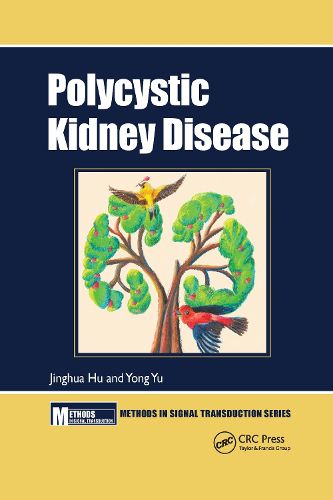Readings Newsletter
Become a Readings Member to make your shopping experience even easier.
Sign in or sign up for free!
You’re not far away from qualifying for FREE standard shipping within Australia
You’ve qualified for FREE standard shipping within Australia
The cart is loading…






This volume focuses on the investigatory methods applied to autosomal dominant polycystic kidney disease (ADPKD), one of the most common human genetic diseases. ADPKD is caused by mutations in PKD1 and TRPP2, two integral membrane proteins that function as receptor/ion channels in primary cilia of tubular epithelial cells. Thus, ADPKD belongs to ciliopathies, a group of disorders caused by abnormal cilia formation or function. This proposed book will cover the state-of-the-art methods ranging from molecular biology, biochemistry, electrophysiology, to tools in model animal studies.
Key Features
Explores the role of cilia in polycystic kidney disease
Focuses on myriad state-of-the-art methods and techniques
Reviews specific mutations integral to this autosomal genetic disease
Includes discussions of model systems
$9.00 standard shipping within Australia
FREE standard shipping within Australia for orders over $100.00
Express & International shipping calculated at checkout
This volume focuses on the investigatory methods applied to autosomal dominant polycystic kidney disease (ADPKD), one of the most common human genetic diseases. ADPKD is caused by mutations in PKD1 and TRPP2, two integral membrane proteins that function as receptor/ion channels in primary cilia of tubular epithelial cells. Thus, ADPKD belongs to ciliopathies, a group of disorders caused by abnormal cilia formation or function. This proposed book will cover the state-of-the-art methods ranging from molecular biology, biochemistry, electrophysiology, to tools in model animal studies.
Key Features
Explores the role of cilia in polycystic kidney disease
Focuses on myriad state-of-the-art methods and techniques
Reviews specific mutations integral to this autosomal genetic disease
Includes discussions of model systems